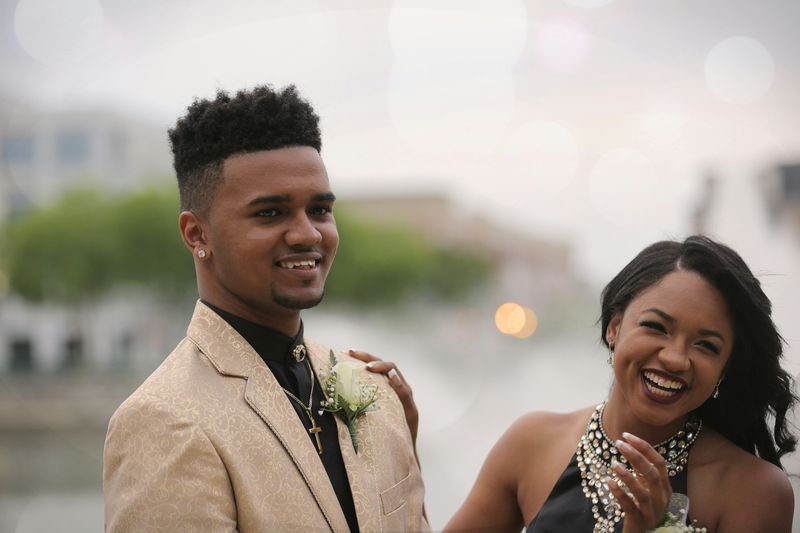
This logo isn't an ad or affiliate link. It's an organization that shares in our mission, and empowered the authors to share their insights in Byte form.
Rumie vets Bytes for compliance with our
Standards.
The organization is responsible for the completeness and reliability of the content.
Learn more
about how Rumie works with partners.
Have you ever wondered if the honeymoon stage of your relationship could last a lifetime?
Well, it's possible if you know how to build healthy relationship dynamics with your partner.
 Photo by JD Mason on Unsplash
Photo by JD Mason on UnsplashHealthy relationship dynamics involve:
Effective communication: Share thoughts and feelings openly. 🗣️
Mutual respect: Value each other's opinions and boundaries. 🤝
Trust building: Foster trust through honesty and reliability. 🔒
Conflict resolution: Address disagreements constructively. ⚖️
Support: Be there for each other's goals and dreams, offering encouragement
and assistance. 🛠️
These dynamics will give you the key skills to build strong, healthy relationships where open communication, mutual respect, and trust come naturally.
Step 1: Practice Active Listening 👂

Give your full attention to your partner through:
Eye contact: Make eye contact to show you're interested and attentive. 👀
Nodding & verbal cues: Nod or say things like "I see" to show you're listening. 😊
No interruptions: Avoid interrupting. Ask open-ended questions like "Can you tell me more?" to encourage deeper conversation. 🚫
Better communication means healthier relationship dynamics.
Step 2: Express Appreciation 🙏

Show appreciation by:
Complimenting specific actions, like "I like the way you calm our daughter down when she starts throwing tantrums." 🗣️ 💬
Leaving notes or sending a kind message, like "Thank you for always being there." 📝 💌
Step 3: Set Healthy Boundaries 🚧

Respect each other's needs:
Discuss behaviors that cause discomfort. For example, "I struggle to sleep when music is played late. Can we agree on a quieter time at night?" 🚫
Talk about personal needs like alone time. For example, "I’m feeling drained and need some alone time to relax. I’ll join next time! 🧘♂️
Step 4: Resolve Conflicts Calmly 🕊️

Handle conflicts constructively:
Use “I” statements (e.g., “I feel 😔 when...”). Instead of saying, "You never help with the dishes," say, "I feel overwhelmed when I come home to a sink full of dirty
dishes." This way, you express your feelings without blame, leading to a constructive conversation.
Take a 15 to 20 minute break if needed. A short break can help both parties cool down and return with a clearer, calmer
mindset. Take a walk🚶♂️or do some deep breathing. 😮💨
Step 5: Be Each Other's Cheerleader 📣

Support each other’s goals:
Show up for important events. If your partner has a recital or an important event, showing up demonstrates support and boosts their confidence. 📅
Celebrate successes. Mark milestones, like completing a big project or learning a new hobby. For example, if your partner completes a big project at work, surprise them with their favorite meal to celebrate. 🎉
What Did You Learn About Healthy Relationship Dynamics?
 Photo by Glenn Carstens-Peters on Unsplash
Photo by Glenn Carstens-Peters on UnsplashYou and your partner recently had an argument about how much time you spend on hobbies versus time together. Your partner expressed feeling neglected, but you feel like it's important to have personal time.
How do you approach this situation with health relationship dynamics in mind?
A. Tell your partner they are overreacting and that you need your hobbies to relax.
B. Listen to your partner’s feelings, acknowledge their concerns, and find a balance between time spent on hobbies and quality time.
C. Avoid the conversation and continue spending the same amount of time on your hobbies.
Quiz
What's the best way to handle this situation?
You’re practicing good communication by listening and showing empathy.
Take Action

Practice these steps regularly to strengthen your relationship dynamics:
This Byte has been authored by
Marko Scantlebury
Teacher
MSc